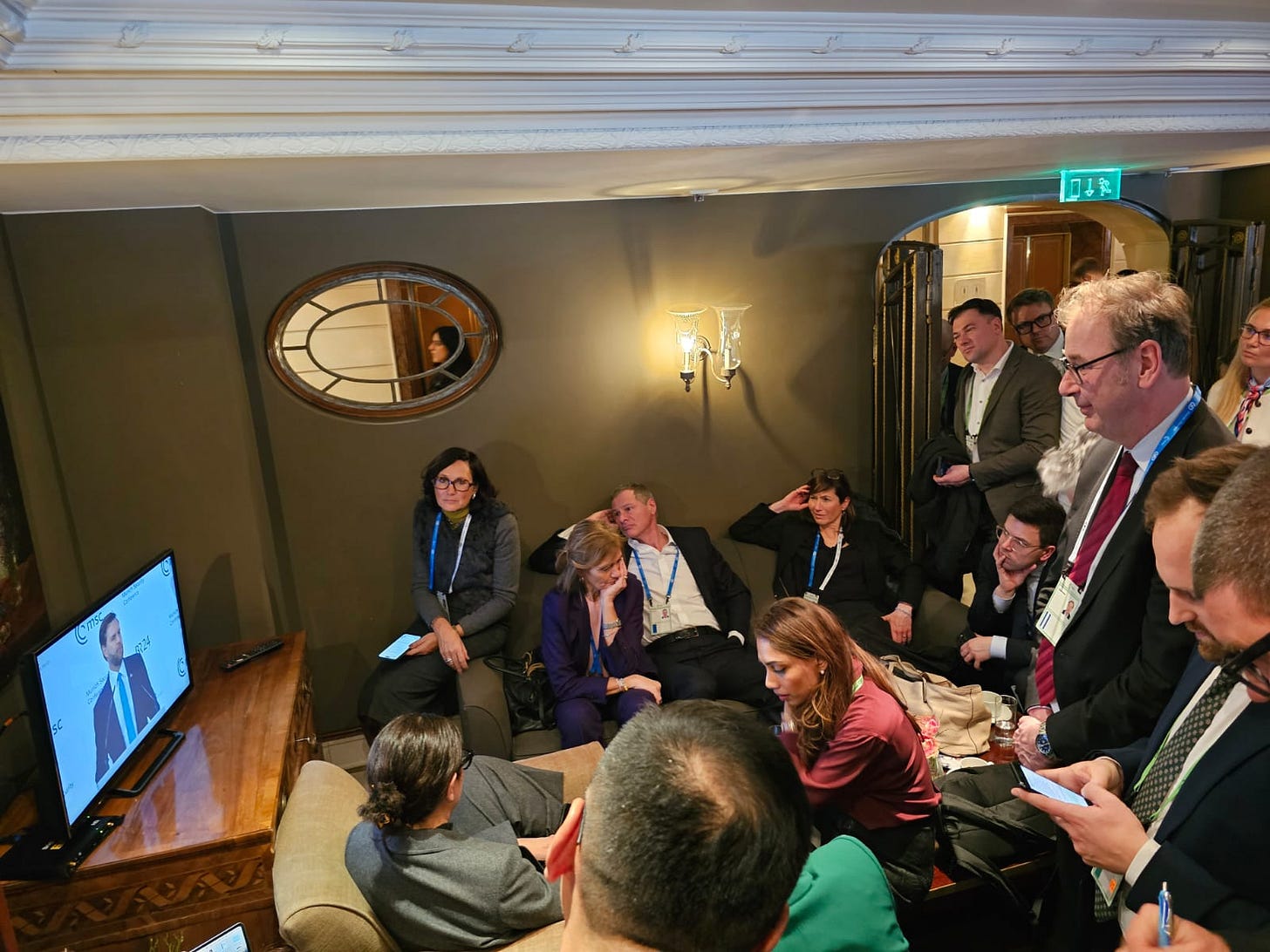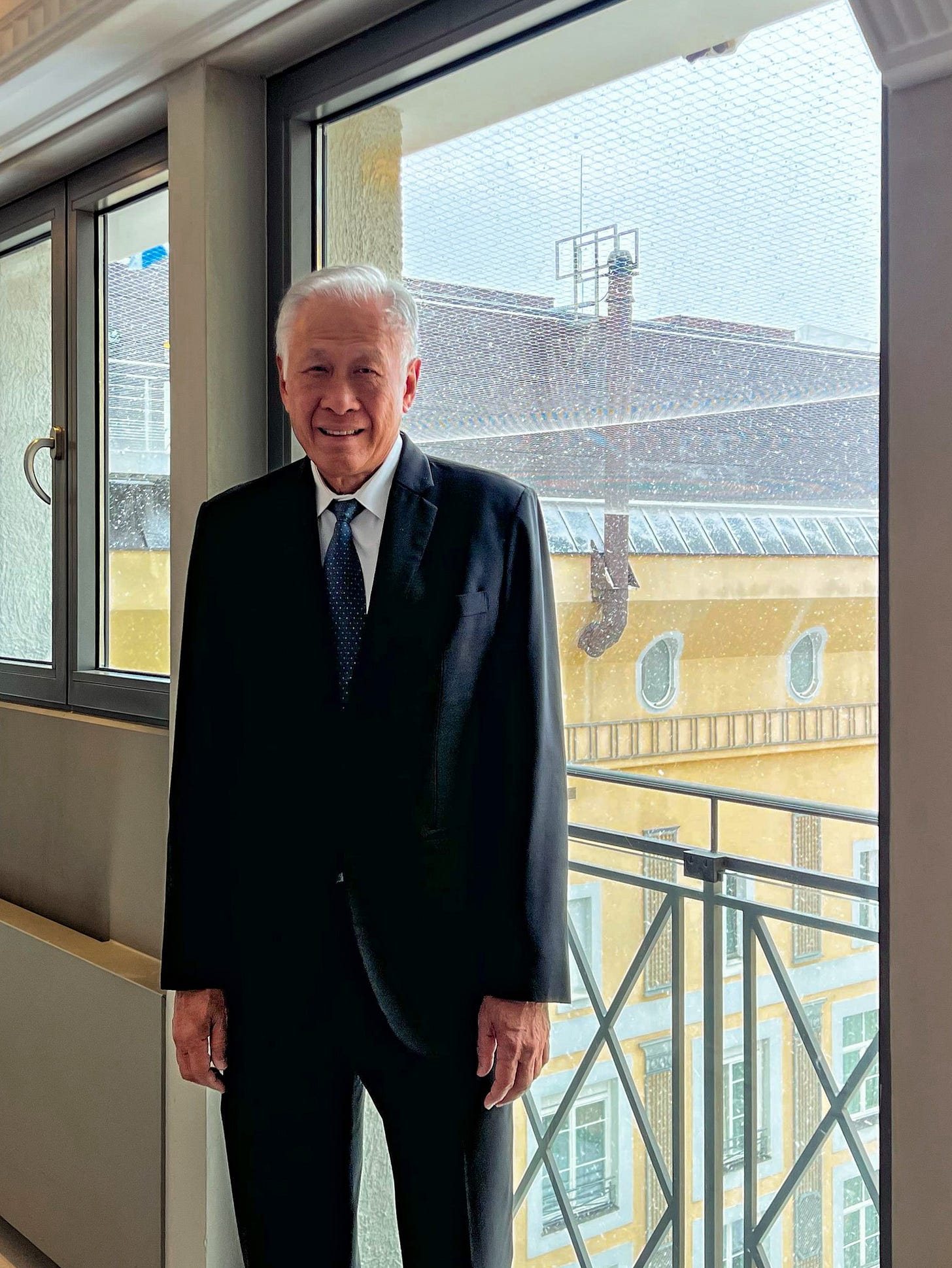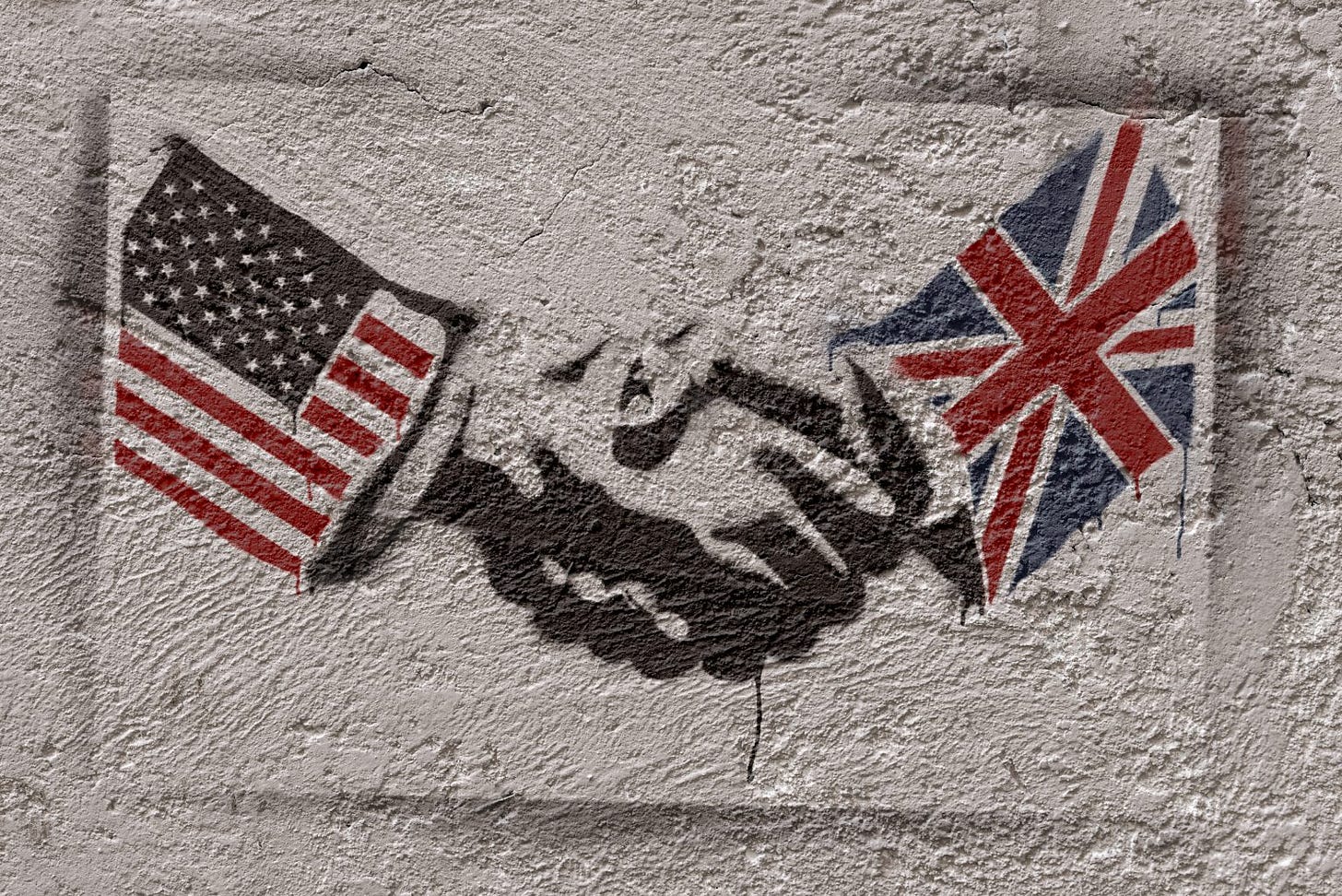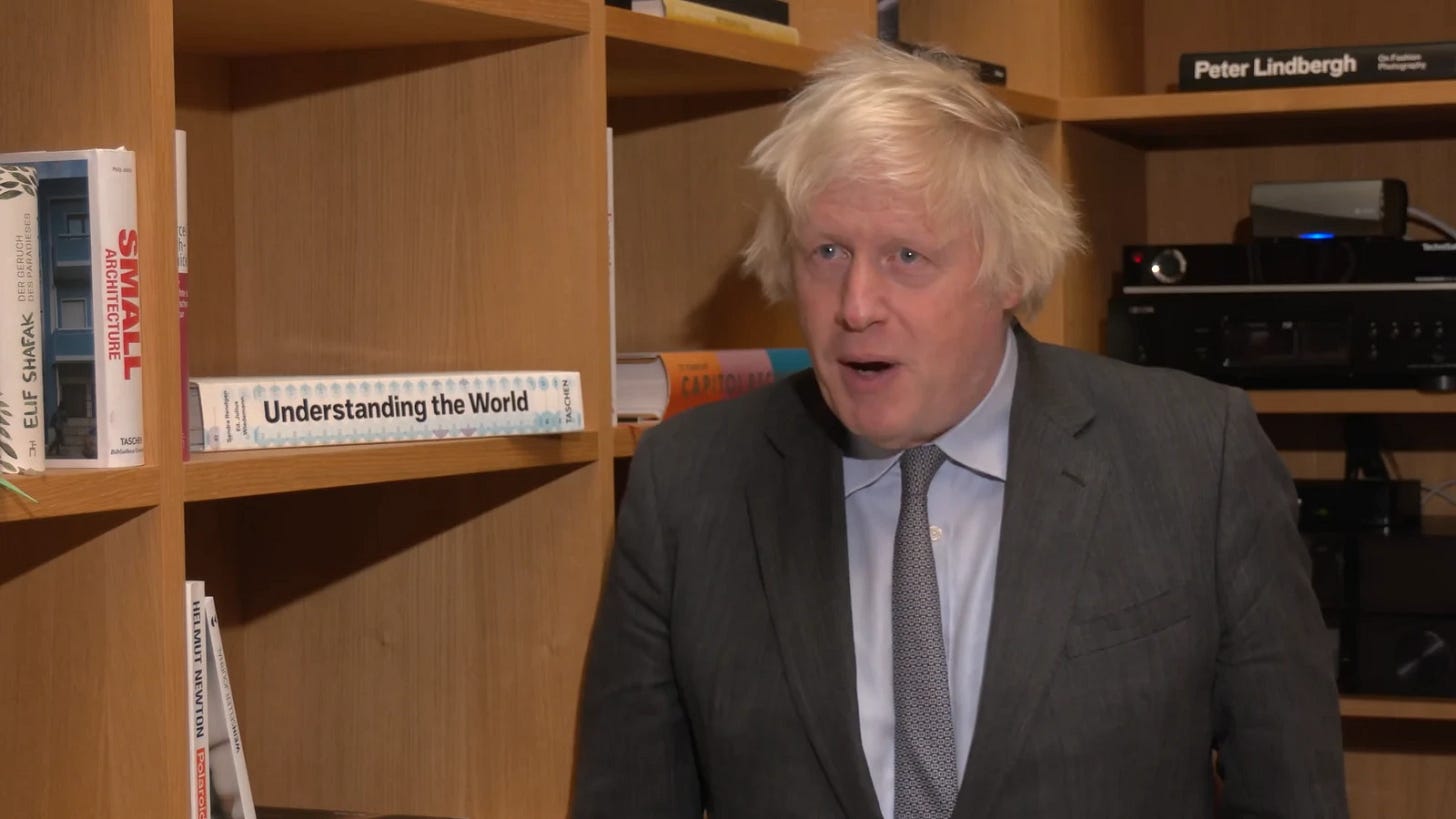What I'm Reading: The Munich Security Conference Edition
February 14: Five reads that piqued my interest this week
NOTE: Due to my attendance at the Munich Security Conference I’ve held this week’s edition to bring you a wrap-up of what went down at one of the most consequential MSCs in history.
The Vance speech
I watched the speech with a crowd of other delegates hunched around a television straining to hear even though it was turned up full volume, for EU Commission President Ursula von der Leyen’s speech.

By the time JD Vance was about two minutes in the entire mezzanine level of the Bayerischer Hof, normally a headache-inducing cacophony of people networking, coffee machines grinding and crockery clinking, was dead silent as the crowd multiplied to hear the most astonishing, provocative and at times offensive speech the Europeans may have ever heard from an ally.
Vance’s speech was well-written and built his argument well. But the contents stunned, shocked and angered those in the room who could not believe the hypocrisy and audacity of being lectured on democracy by a US Vice President who still denies the 2020 US election result and is part of an Administration that is gutting the bureaucracy of perceived ideological opponents, prioritises digital freedoms above all including social cohesion and has purged at least one media outlet from the White House press corps for failing to amend its naming style for the Gulf of Mexico to the Gulf of America, i.e. refusing to comply with US President Donald Trump’s Executive Order renaming the body of water.
Vance took aim at Europe’s migration levels and regulation of digital platforms and accused European leaders of running scared of voters on those issues.
… the threat that I worry the most about vis-a-vis Europe is not Russia, it’s not China, it’s not any other external actor. What I worry about is the threat from within. The retreat of Europe from some of its most fundamental values: values shared with the United States of America.
I was struck that a former European commissioner went on television recently and sounded delighted that the Romanian government had just annulled an entire election. He warned that if things don’t go to plan, the very same thing could happen in Germany too.
Now, these cavalier statements are shocking to American ears. For years we’ve been told that everything we fund and support is in the name of our shared democratic values. Everything from our Ukraine policy to digital censorship is billed as a defence of democracy. But when we see European courts cancelling elections and senior officials threatening to cancel others, we ought to ask whether we’re holding ourselves to an appropriately high standard. And I say ourselves, because I fundamentally believe that we are on the same team.
We must do more than talk about democratic values. We must live them. Now, within living memory of many of you in this room, the cold war positioned defenders of democracy against much more tyrannical forces on this continent. And consider the side in that fight that censored dissidents, that closed churches, that cancelled elections. Were they the good guys? Certainly not.
And thank God they lost the cold war. They lost because they neither valued nor respected all of the extraordinary blessings of liberty, the freedom to surprise, to make mistakes, invent, to build. As it turns out, you can’t mandate innovation or creativity, just as you can’t force people what to think, what to feel, or what to believe. And we believe those things are certainly connected. And unfortunately, when I look at Europe today, it’s sometimes not so clear what happened to some of the cold war’s winners.
I look to Brussels, where EU Commission commissars warned citizens that they intend to shut down social media during times of civil unrest: the moment they spot what they’ve judged to be ‘hateful content’.
…
In Washington, there is a new sheriff in town. And under Donald Trump’s leadership, we may disagree with your views, but we will fight to defend your right to offer them in the public square. Now, we’re at the point, of course, that the situation has gotten so bad that this December, Romania straight up cancelled the results of a presidential election based on the flimsy suspicions of an intelligence agency and enormous pressure from its continental neighbours.
Now, as I understand it, the argument was that Russian disinformation had infected the Romanian elections. But I’d ask my European friends to have some perspective. You can believe it’s wrong for Russia to buy social media advertisements to influence your elections. We certainly do. You can condemn it on the world stage, even. But if your democracy can be destroyed with a few hundred thousand dollars of digital advertising from a foreign country, then it wasn’t very strong to begin with.
The transatlantic alliance collapses
Patrick Wintour writes that the speech marked the collapse of the transatlantic alliance.
The speech signalled that the pre-existing dispute between Europe and the US was no longer to do with the sharing of the military burdens, or the nature of the future security threat posed by Russia, but something more fundamental about society.
It was not just a collection of cheap shots in a culture war, while a real, life-and-death military war was largely ignored. It was a call to arms for the populist right to be able to seize power in Europe, and a promise that the ‘new sheriff in town’ would help them to do so.
…
For years, many Maga activists, such as Steve Bannon, have claimed an affinity with Putin’s ideologue Alexander Dugin, a man Bannon has met and praised. They both believe European elites promote a ‘globalist’ ideology that denies the existence of different cultures and traditions. But it was one thing for Bannon to see these connections, another for them to be echoed by the White House.
For the Maga movement, and for Vance, judging by his speech, the withdrawal from Europe as it exists now is not about burden-sharing, American isolationism, disputes about the trustworthiness of Putin, or even tariffs, but about an ideological fissure.
Trump creating power vacuum says Major
John Major, former Conservative prime minister of the UK, said the Trump administration was creating a power vacuum that would embolden Russia and China.
Sir John said the world was changing and ‘may not be reshaping in a way that is congenial to the West’.
He continued: ‘Many of the gains we made over recent years, when the Soviet Union collapsed, are now being reversed and you see a very aggressive Russia again in Ukraine.
‘And if they were to succeed with their venture in Ukraine, no doubt they'd be elsewhere before too long.
‘There is no doubt in my mind that democracy has been in modest decline over the last 18 years.
‘There is an ugly nationalism growing, mostly from the intolerant right… So it is a very unsettled time.’
Singapore Defence Minister says US has turned from liberator to predator
Singapore has a complex relationship with the US and China but the defence establishment generally does not, which makes this speech from the country’s Defence Minister Ng Eng Hen on the sidelines of the Conference so extraordinary.

For Asia, the US in the last 60 years since President John F Kennedy's inaugural speech – that one form of tyranny (colonial control) will not be replaced by an iron tyranny, that was the moral legitimacy in which US presence was in our region. US has now willy-nilly – the image has changed from liberator to great disruptor to a landlord seeking rent.
…
So in this indeterminate phase, in the absence of a leader to protect our global commons, I think we must all expect that the progress and well-being of the global commons will suffer. To me, that is a given. It is just how much. That includes any global regime to deal with climate change. That includes any system that wants to deal with other aspects.
On the other hand, if you look at China, it is 80 per cent of the world’s solar manufacturing capacity, and more than half of EVs (Electric Vehicles) produced worldwide are Chinese-made. And I think this dichotomy going forward between the US and China will put pressure on trade and security.
Let me end by asking questions – who, if anyone, any one country or region or bloc, can step in if US declines to protect the global commons and how effective, and against what resistance?
Europe's ‘headless chickenism’ on Ukraine
Boris Johnson is right.
Too many in Europe responded not with calm or considered plans of action but hysterical words, when Trump announced he’d be starting talks with Russia’s Vladimir Putin, with many fearing Ukraine and Europe could be left out of negotiations.
‘The Trump administration is clearly getting closer to deciding how they're going to solve this appalling conflict.
‘You've heard their plans. I think there's quite a lot of headless chickenism, quite frankly, from the Europeans about what the Trump administration is saying.
lI think it's very important to get what that administration and what the US is saying into perspective, because they aren't looking at what Trump is saying.
‘Looking at what Pete Hegseth is saying, they're not betraying Ukraine. They're not walking away from Ukraine. They're saying Ukraine's got to be a sovereign, prosperous country.’
And that’s my list for this edition.
📺 📻 My media appearances this week:
On Wednesday I appeared on The Project to discuss the fallout from the Sam Kerr verdict:
And on Friday I reviewed the papers for Monocole Radio’s The Globalist.
Please do send me anything that’s caught your eye, I enjoy knowing what you’ve been reading.
Some of you have started to offer me copies of your books etc. Please email me at latika@latikambourke.com for a forwarding address for hard copies.




